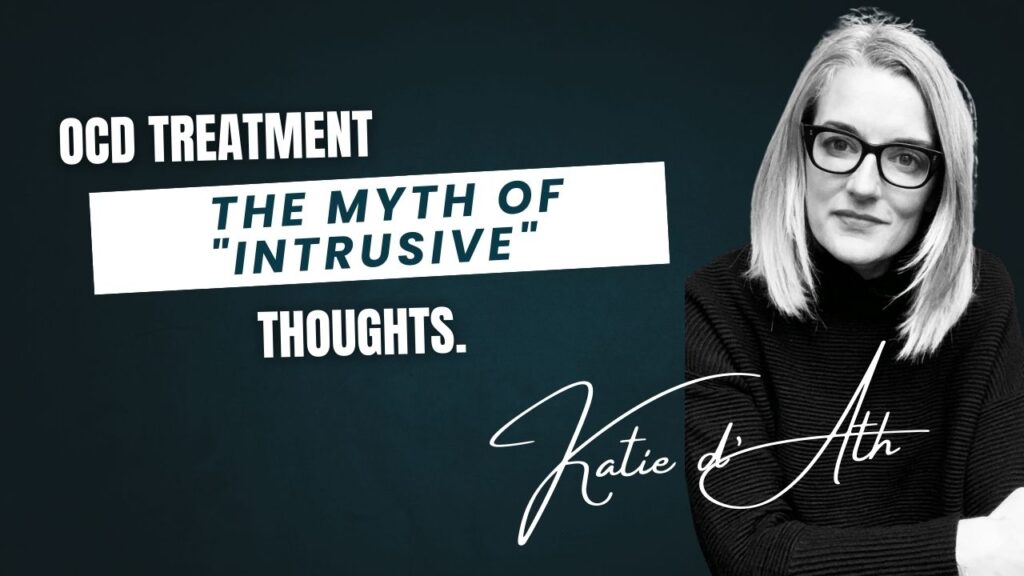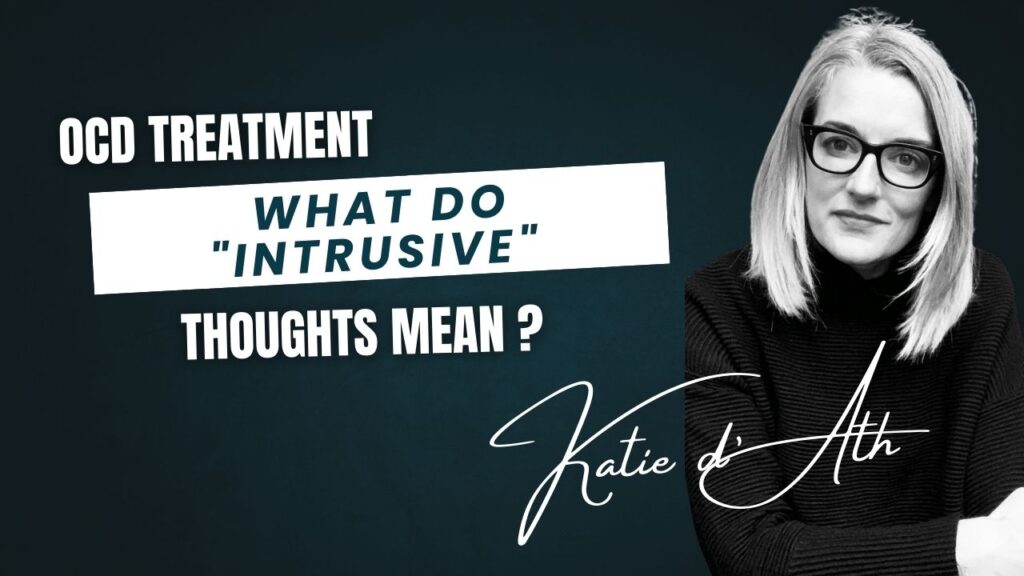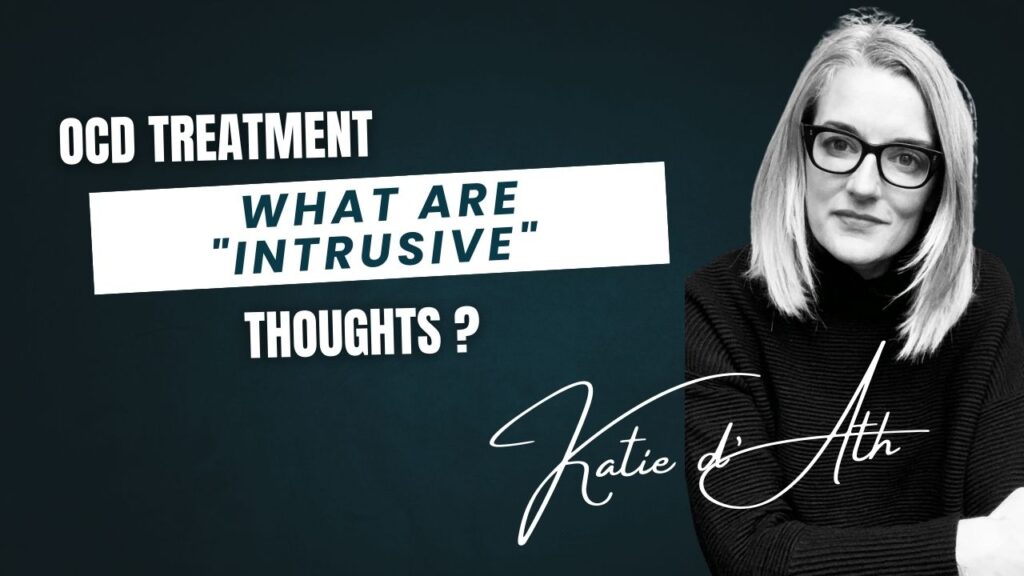So, what do intrusive thoughts, images, sensations, or feelings — what we often call “intrusive thoughts” — actually mean?
Well, the short answer is probably nothing. The reality is, everyone experiences intrusive thoughts from time to time. They’re a normal, everyday part of being human.
I know, I can hear you shouting at the screen: “Yes, but mine are different!”
And of course, they feel different — because you’ve attached some sort of content or meaning to those thoughts that you find abhorrent, upsetting, or just plain wrong.
You might think, “This must mean I’m dangerous,” or “It proves I’m a bad person,” or similar beliefs about yourself.
What you might not realise is that other people also have thoughts like this — content that they find disturbing, scary, or upsetting. Yet, most of them don’t interpret those thoughts as meaningful or as evidence of who they are.
Intrusive Thoughts
The Trap of Trying to Understand or Interpret the Thoughts
In treatment, we often talk about how the more you try to figure out what these thoughts, images etc mean, the worse things get.
When you focus on the content — asking “What does this mean about me?” or “Why am I having this thought?” — you’re essentially feeding the cycle.
The more you listen to, analyse, and try to “solve” the thoughts, the more you deepen the problem, making them feel more urgent and more entrenched.
The key idea here is that when you’re caught in this pattern, your focus is on the content of the thoughts, rather than on how you respond to them.
That’s what keeps OCD alive. Instead, we encourage you to shift your perspective.
Shift Your Focus Outside of the Thoughts
When those intrusive thoughts pop up, instead of asking what they mean, try to remind yourself:
They probably don’t mean anything.
Yes, I know that might feel uncomfortable or even problematic — “How can I just ignore these thoughts?” — but that’s exactly what we want to practice: accepting the uncertainty.
The goal is to live as if these thoughts don’t have special meaning. Act as if they don’t tell you who you are. And most importantly, stop trying to find an answer. Trust me, the more you try to “solve” the content of the thoughts, the worse they tend to get.
Living with the Uncertainty
Instead, learn to sit with the uncertainty. Accept that these thoughts are probably just thoughts. Let go of the need to understand or interpret them.
The best bit is you don’t even need to believe that they don’t mean anything (so don’t bother going down this road as it will most likely lead back to you reassuring yourself) – instead the trick is to act ‘as if” you believe these mental events don’t mean anything, regardless how loudly your OCD might start shouting “you’re just deluding yourself and everyone else by pretending”
And don’t get caught up in telling yourself “it’s just OCD” or “they don’t mean anything” – (notice I said they probably don’t mean anything….) as this is just another form of reassurance and engagement that won’t help you in the long term.
It’s not always easy, but trust me — the more you practice, the less impactful those thoughts or feelings become over time.
The goal isn’t to eliminate them but to change how you relate to them, reducing their hold on your mind.



